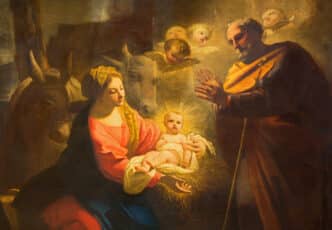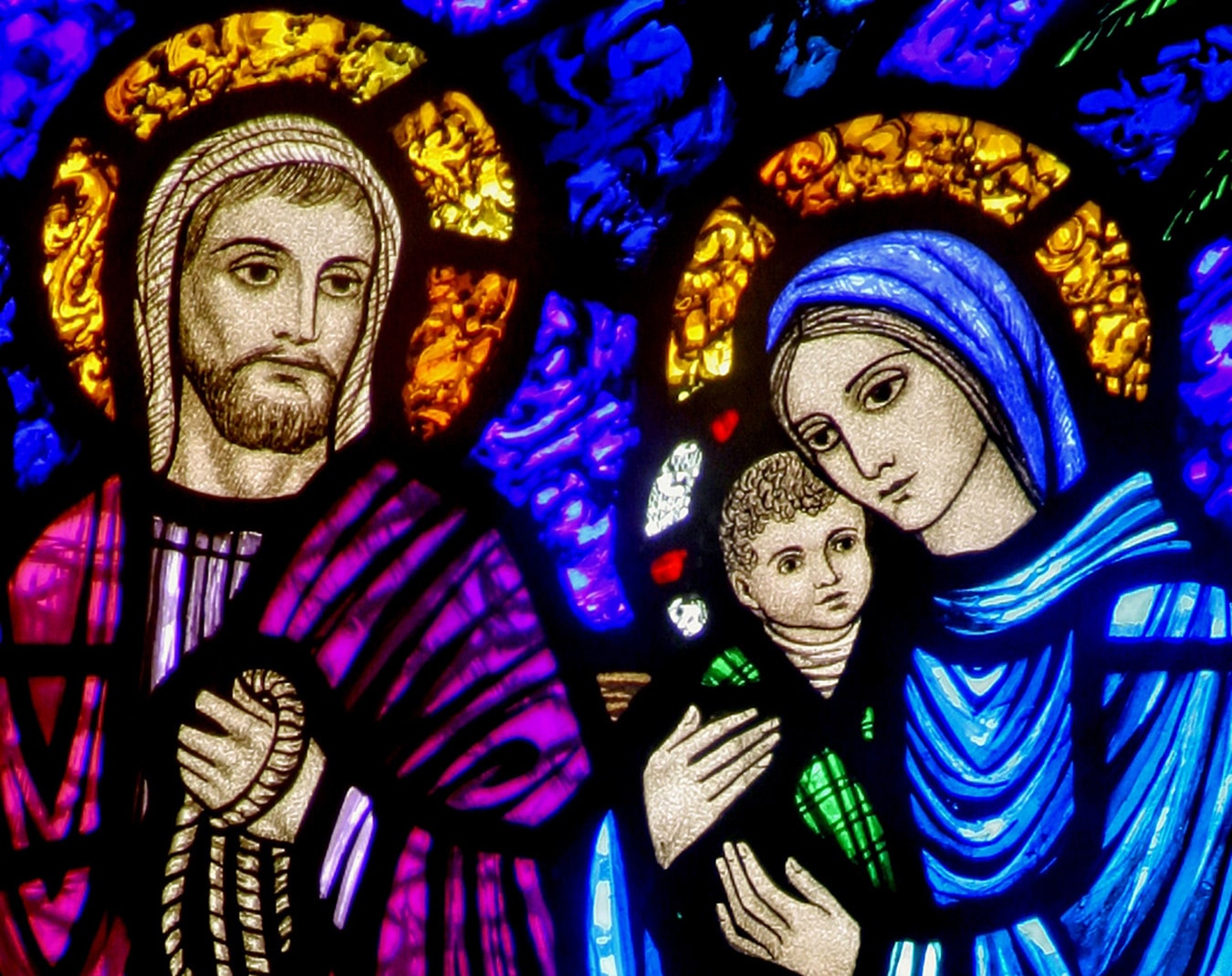Through the liturgy of the Church, we are brought into intimacy with the Lord.
Catholic worship always carries us there — to the real person of Christ and to his Passion. That is, it is no mere memorial what we Catholics experience in worship; rather, the Liturgy always brings us to a sacramental point, to an immediacy, to a moment in which the Lord looks at us and we at him — when he washes us, touches us, feeds us.
This, to be honest, is the thing that made me a Catholic, the belief that Jesus is truly present in the Church, that he is sacramentally contemporary.
What I mean is clear when we step back and look at how the church’s liturgy has been guiding us these past several weeks. In Advent we were nudged to watch and prepare for the coming of Christ, and then we were asked to contemplate his birth at Christmas. Next, we were invited to notice how God took flesh to begin his work of salvation within the intimacies of a holy family. But the very next week we were asked to see how this family holds the king of all — of all kings and the universe, that this child born for us is the God-king, that this small thing is bigger than all things.
And then we come to this Sunday and to the baptism of Jesus. In this feast, as it follows Epiphany, we are, as I said, brought to a sacramental moment. We contemplate how this epiphanic Lord of all things humbles himself to receive baptism, the baptism we share together with him. This is the moment, how we are brought intimately into contact with this Christ we’ve been looking for and whom we’ve worshipped with angels, shepherds, and kings.
By this act, by submitting to the baptism of John, Jesus united us with himself in the baptism he would later command his disciples to give those who believed — to us.
| January 12, 2025 – The Baptism of the Lord |
|---|
| Is 42:1-4, 6-7 or Is 40:1-5, 9-11 Ps 29:1-2, 3-4, 3, 9-10 or Ps 104:1b-2, 3-4, 24-25, 27-28, 29-30 Acts 10:34-38 or Ti 2:11-14; 3:4-7 Lk 3:15-16, 21-22 |
Contemplating our own baptism
That is, we see in this feast of the Baptism of the Lord an opening, the beginning of our union with Christ. Contemplating the Lord’s baptism, we immediately contemplate our own. Advent and Christmas, you see, have brought us to this moment of intimacy, this moment of sacramental union, and we wonder at the graced fact that in baptism, as the Catechism simply puts it, “we become members of Christ” (CCC 1213). How is Christmas relevant? What does it mean for us?
In this Sunday’s feast we receive the answer: Christmas touches us first in baptism and then in the sacramental life born from it. That’s what I mean by saying the liturgy always carries us into intimacy with Jesus, because in the liturgy flowers the sacramental.
And it’s a sacramental union that changes us. Read St. Paul’s letter to the Romans — chapters 5 through 9 especially — to learn what such change looks like both spiritually and morally. Baptism is our rebirth and adoption, enabling us to call God our Father. Through baptism, we can walk in “newness of life” (Rom 6:4). In baptism we are free in the Spirit.
Another way to think about this is to pay attention to the words of the Father, the voice from heaven heard at Jesus’s baptism. “You are my beloved Son; with you I am well pleased’ (Lk 3:22). These words bear two truths about Christ which become, through baptism, two truths about us. The first truth is royal, that Christ is Son and King, the heir of David (Ps 2:7). The second truth is sacrificial; in these words, Jesus is figured as the mysterious servant that Isaiah prophesied, who will both suffer and bring justice (Is 42:1). That is, Christ in his baptism is declared by the Father to be both king and servant, which is, as I said, what we’re supposed to be by means of the grace of baptism — kings and servants, all of us. That is who Jesus is, and it’s what we are too.
Which is the moral gift of Advent and Christmas. Having watched and celebrated the birth of Jesus, the universal Lord, we now celebrate our having been conformed to him in baptism. We remember that by faith and the Spirit we too live now in Christ as king and servant. Which, if you think about it, prepares us for the weeks ahead as we begin next Sunday to follow and walk with Jesus to Calvary — a journey for which we are ready insofar as the liturgies and Advent and Christmas have shaped us.







